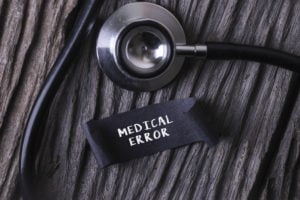Misdiagnosis and delayed diagnosis are two of the most common medical errors made in the United States every year, according to a 2016 study by Johns Hopkins University. Kaiser Health News estimates that 10-20 percent of all patients receive at least one misdiagnosis.
Misdiagnosis may include delayed diagnosis, failure to diagnose, or diagnosing a condition the patient does not have. However, not every misdiagnosis rises to the level of medical malpractice. Here are factors that experienced medical malpractice lawyers consider when determining if medical malpractice resulted from a misdiagnosis:
- Did a doctor-patient relationship exist? A relationship likely existed if the medical professional agreed to see you, prescribed treatment, or otherwise accepted responsibility for your care.
- Did the doctor act negligently? Care is typically considered negligent if it falls below the “standard of care” that an ordinary, reasonably prudent doctor with similar training and skill would have provided in the same situation. This may involve ordering certain tests, correctly reading lab results, listening to the patient, and other steps.
- Did these actions cause your injuries? In order to receive compensation, an injured person must show that the negligent act caused their injuries.
- Did damages result from the injuries? Only certain types of losses can be compensated by a medical malpractice lawsuit. Medical bills, lost wages, property damage, and pain and suffering are common types of losses that can be compensated in court. Other types of damages are available in some cases.
Medical malpractice law recognizes that not all mistakes in diagnosis are the doctor’s fault. For instance, a mistake resulting from defective test equipment would not be considered malpractice if the doctor otherwise met the standard of care with the equipment or information he or she had.
If you’ve been misdiagnosed and harm resulted, you may have a claim for medical malpractice based on the misdiagnosis. An experienced medical malpractice lawyer can help you understand your legal options. Contact Andres, Berger & Tran today at 856-317-6558 or via our online contact form to learn more.
The articles on this blog are for informative purposes only and are no substitute for legal advice or an attorney/client relationship. If you are seeking legal advice, please contact our law firm directly.














